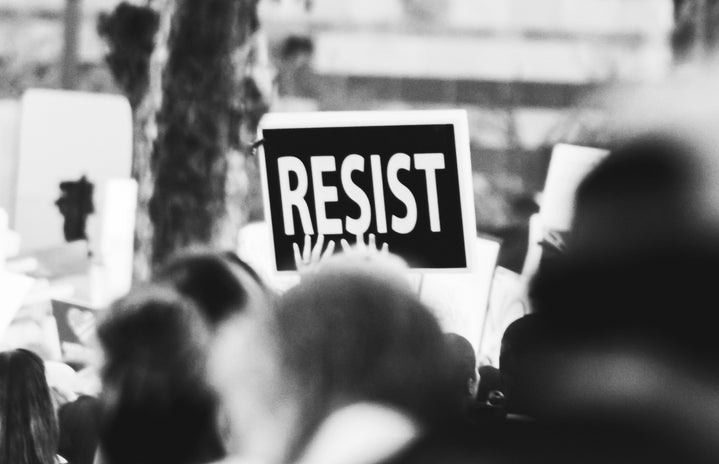Lately, political activism is more important than ever. It is crucial that everyone takes part in educating themselves and others to ensure that we can advocate for positive changes to be made to society. Whatever your political leanings or stances, it’s always beneficial to be informed on the various subjects that impact today’s world. Today, SO much news and information are shared through social media! While it’s important to watch out for “fake news,” social media can be a great tool for finding and sharing knowledge. Here are some “Do’s and Don’t’s” to help you incorporate activism into your social media profiles.
Do: repost from reputable sources.
At this point in life, we all know that we can’t believe everything we read on the internet. But the social media accounts of news stations, government organizations, and non-profits are typically fairly trustworthy! Reposting statements from your favorite politicians is perfectly fine, just know that it may be best to do some fact-checking of your own before believing anything they say.
Don’t: post too frequently.
When repositing political content on your personal social media account, you don’t want to overwhelm your followers with tons of information every day! I recommending sticking to 3-5 politically-based posts per day. This way, your followers are being casually educated on different subjects that are important to you. If they don’t want to see these posts, they can simply swipe away or mute your story!
Do: try to focus on facts, rather than opinions.
The best types of posts to share with your followers are ones that are educational, rather than ones that are biased towards one opinion or political party. Try to focus on statistics and other fact-based information instead of simply stating your point of view on a topic.
Don’t: engage in arguments with people who disagree with you.
When posting about political subjects, people will likely try to talk to you about the content you’re posting. Sometimes, these conversations can turn into arguments. This is especially unfortunate when political arguments end up occurring between friends! Try to stay level-headed and avoid heated statements. If you notice a discussion is turning aggressive, simply shut it down. But, if you can engage in a civil conversation about a subject with someone, great!
Do: Be open to new information.
When talking to others and when browsing through social media, allow yourself to have an open mind! Don’t immediately cut down someone else’s opinion without hearing them out first—understanding why people have certain opinions is the best way to reach an agreement in the future! Even if you never reach an agreement, simply gaining knowledge of how others think is beneficial to you!
Don’t: limit your posts to subjects that only affect you.
There are a variety of subjects of importance that are worthy of learning and posting about that don’t affect you and me! Don’t hesitate to post about topics that are occurring across the world. If you see something that seems important, learn about it, and, if you think it’s necessary, post about it. Don’t be afraid to step outside of your worldview!
Do: amplify the voices of marginalized groups.
When sharing information, try to find sources that can best represent the issue they are trying to discuss. For example, it is better repost information by the Black Lives Matter movement when talking about systematic racism against African-Americans rather than reposting information from Joe Biden, or even posting my own opinion on the subject. Because, no matter how informed Joe Biden or I am on the topic of systematic racism, it is so much more important to amplify the voices of those who have personally experienced racism.
Don’t: put too much pressure on yourself!
The biggest piece of advice I have is to not put pressure on yourself when posting about political topics! There are a lot of different issues that plague today’s world, and it can be a lot to handle. Take breaks from posting when you need to, and take your time when learning about different subjects.


